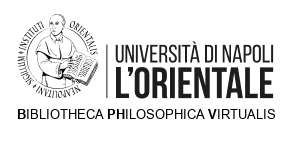Il tempo dell'Apocalisse. Vita di Gioacchino da Fiore / Gian Luca Potestà, Laterza, Roma-Bari 2004
Si tratta della biografia di Gioacchino da Fiore, arricchita da un'ampia bibliografia e da uno studio di Gian Luca Potestà.
La vita e l'opera dell'abate calabrese sono analizzate tenendo conto degli avvenimenti storici e politici del secolo XII.
I nascenti movimenti religiosi, le eresie, il complesso rapporto con l'Islam erano motivi di preoccupazione per Gioacchino.
Egli considerava la sua epoca come il capitolo ultimo della storia, segnata dall'avvento delle terza era, quella dello Spirito.
La teologia simbolica, celata negli eventi principali del secolo XII, favorisce una nuova visione della "historia humanorum".
------
The book is the biography of Joachim of Fiore, enhanced by an extensive bibliography and a study of Gian Luca Potestà.
The life and work of the Calabrian monk are analyzed in relation to the historical and political events of the twelfth century.
The emerging religious movements, heresies, and the complex relationship with Islam were all Joachim's concerns.
He considered his time as the last chapter of the story, marked by the advent of the third era, that of the Spirit.
The symbolic theology hidden in the main events of the twelfth century promotes a new point on the "historia humanorum".
Gian Luca Potestà
Gian Luca Potestà è professore di Storia del Cristianesimo presso l'Università Cattolica di Milano, membro della Commissione Internazionale per l'edizione critica degli "Opera omnia" di Gioacchino da Fiore e del Comitato Scientifico del Centro Internazionale di Studi Gioachimiti (S. Giovanni in Fiore).
Fa parte del Comitato scientifico dell'"International Consortium for Research in the Humanities, Fate, Freedom, and Prognostication. Strategies for Coping with the Future in East Asia and Europe" dell'Università Friedrich-Alexander di Erlangen-Nüremberg.
È membro del gruppo internazionale di ricerca "The Translations of John of Rupescissa’s Vade mecum in tribulatione (1356) into Seven European Vernaculars", membro del comitato direttivo della Rivista di Storia del Cristianesimo (Morcelliana) e degli Annali di Scienze religiose (Brepols).
Dirige "Aevum. Rassegna di scienze storiche linguistiche e filologiche" (Vita e Pensiero) ed è membro del comitato di redazione della rivista elettronica "Oliviana. Mouvements et dissidences spirituels XIIIe-XIVe siècles". È stato Gastprofessor di Storia medievale presso l'Università di Konstanz.
Ha collaborato al "Dictionnaire d'Histoire et de Géographie ecclésiastiques", al "Dictionnaire de Spiritualité", al "Lexikon des Mittelalters", all'"Encyclopedia of Apocalypticism", all'"Encyclopedia of the Bible and Its Reception". Ha curato inoltre l'edizione critica di alcune opere di Gioacchino da Fiore.
Ha insegnato all'Università di Palermo ed è stato professore invitato presso la Facoltà Teologica della Sicilia, Directeur d'études invité presso l'École des Hautes Etudes en Sciences Sociales (Paris 2007) e Forschungsstipendiat dell'Historisches Kolleg di Monaco di Baviera.
Tra i suoi numerosi articoli e saggi, segnaliamo "L'ultimo messia. Profezia e sovranità nel Medioevo", "Il tempo dell'Apocalisse. Vita di Gioacchino da Fiore", "I francescani e la Bibbia nel '200", "Angelo Clareno dai poveri eremiti ai fraticelli", "Storia ed escatologia in Ubertino da Casale".
------
Gian Luca Potestà is Full Professor of History of Christianity at the Catholic University of Milan, a member of the International Commission for the critical edition of the "Complete Works" of Joachim of Fiore and of the Scientific Committee of the International Center for Studies Joachimists (S. Giovanni in Fiore).
He is part of the Scientific Committee of the "International Consortium for Research in the Humanities, Fate, Freedom, and prognostication. Strategies for Coping with the Future in East Asia and Europe" at the Friedrich-Alexander University of Erlangen-Nüremberg.
He is a member of the international research group "The Translations of John of Rupescissa's Vade mecum in tribulation (1356) into Seven European vernaculars", a member of the Steering Committee of the Journal of the History of Christianity (Morcelliana) and of the Annals of Religious Studies (Brepols).
He directs "Aevum. Exhibition of Historical Sciences linguistic and philological" (Vita e Pensiero), and is a member of the editorial committee of the electronic journal "Oliviana. Mouvements et dissidences spirituels XIIIe-XIVe siècles". He was Gastprofessor of Medieval History at the University of Konstanz.
He has worked at the "Dictionnaire d'Histoire et de Géographie ecclésiastiques", the "Dictionnaire de Spiritualité", the "Lexikon des Mittelalters", the "Encyclopedia of apocalypticism", the "Encyclopedia of the Bible and Its Reception". He also edited the critical edition of some texts of Joachim of Fiore.
He has taught at the University of Palermo and was Visiting Professor at the Theological Faculty of Sicily, Directeur d'études invité at the Ecole des Hautes Etudes en Sciences Sociales (Paris 2007) and Forschungsstipendiat at the Historisches Kolleg of Munich.
His several articles and essays include "The last messiah. Prophecy and sovereignty in the Middle Ages", "The time of the Apocalypse. Life of Joachim of Fiore", "The Franciscans and the Bible in the '200", "Angel Clareno by the poor hermits to friars", "History and Eschatology in Ubertino da Casale".
Shelfmark: F.L. 0074


